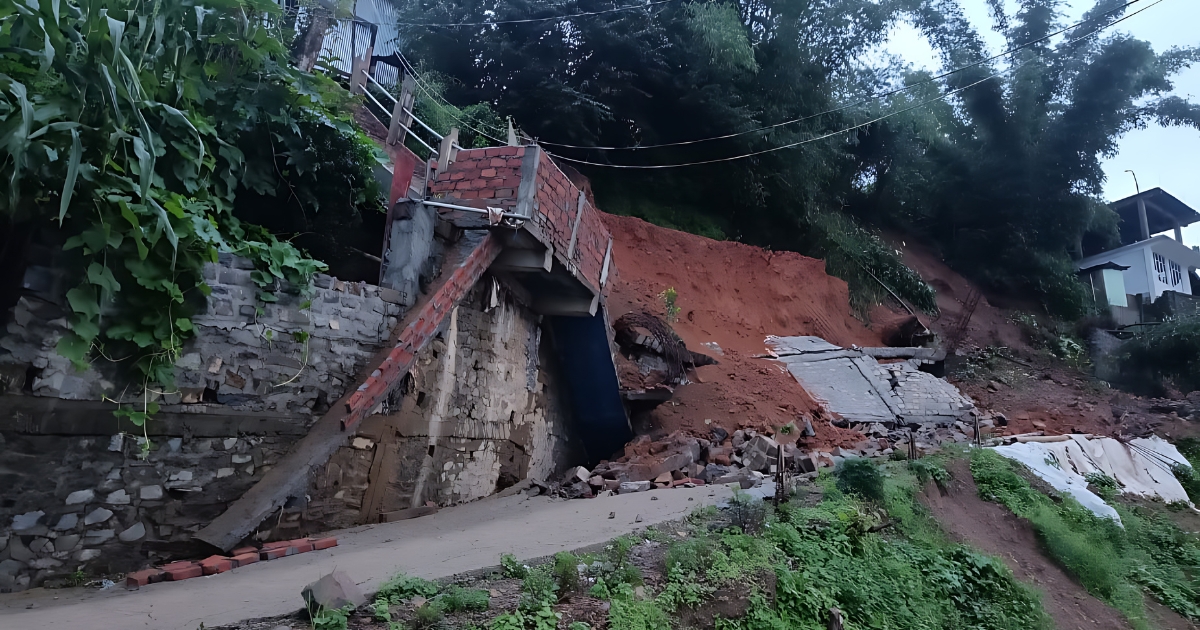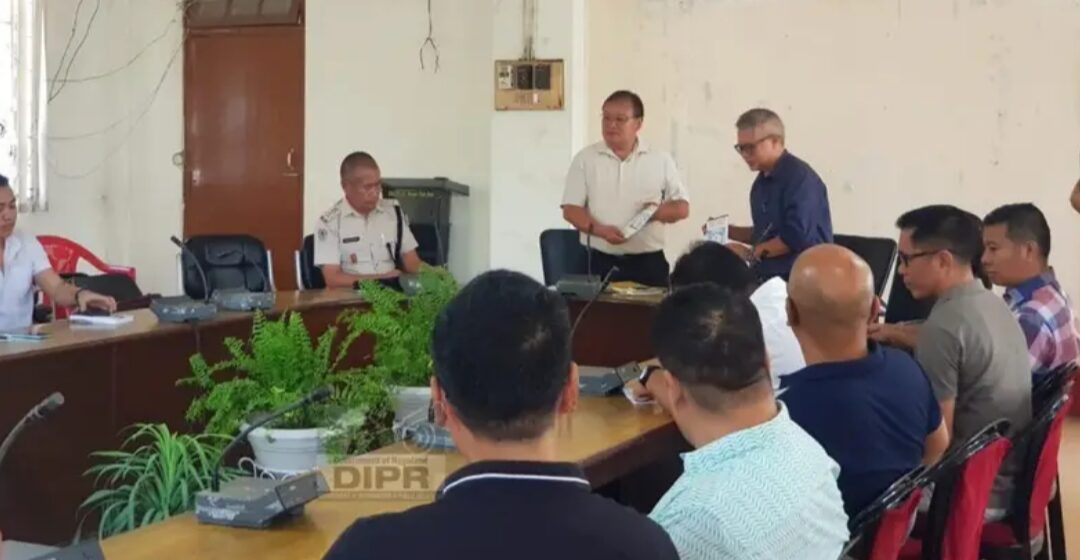Massive soil erosion has struck Zunheboto town in Nagaland, primarily affecting the Alahuto colony. The relentless rains have led to severe land degradation and instability, posing significant threats to the local community and infrastructure.
The incessant rainfall in Zunheboto has been identified as the primary cause of the massive soil erosion. The continuous downpour has loosened and washed away the topsoil, leading to severe erosion. The steep slopes and inadequate vegetation cover have further exacerbated the problem, making the soil more vulnerable to erosion.
Also Read: Nagaland: Rockfall on NH-29 injures four, prompts urgent safety advisory
The immediate impact on the community has been devastating. At least 13 households in Alahuto colony have been directly affected, with three houses demolished as a precautionary measure.
The erosion has also caused significant damage to infrastructure, including roads, buildings, and essential services. Disruptions in electricity and telephone lines have further complicated the daily lives of the residents.
In response to the crisis, local authorities and the newly elected members of the Zunheboto Town Council (ZTC) have taken swift action. The district administration, led by Deputy Commissioner Rahul Bhanudas Mali, has provided emergency relief funds to the affected households.
Officials from the district administration and the Nagaland State Disaster Management Authority (NSDMA) have assessed the situation and advised precautionary evacuation to prevent further harm.
Also Read: 10 Cities Around The World with Zunheboto-Like Climate
To combat the ongoing erosion and prevent future occurrences, several mitigation efforts are being undertaken. Erosion control measures such as slope stabilisation, hydraulic applications, and agronomic amendments are being implemented. For instance, the use of MacFlex HP FGM (HECP) and other agronomic amendments has shown promise in stabilising slopes along the Chakabama-Zunheboto road.
Vegetation and reforestation efforts are also being considered to stabilise the soil and prevent erosion. Planting trees and vegetation can help anchor the soil and reduce the risk of erosion. Improved agricultural practices, such as contour ploughing and terracing, are being promoted by the Department of Soil & Water Conservation in Nagaland to reduce soil erosion in farming areas.
For a sustainable resolution, long-term strategies are essential. Afforestation and reforestation efforts can significantly stabilise the soil and prevent erosion. Improved agricultural practices, such as contour ploughing and terracing, can reduce soil erosion and improve agricultural productivity. Building resilient infrastructure that can withstand heavy rainfall and erosion is crucial for long-term stability.
Also Read: Nagaland Police arrest 18 in major crackdown on drugs and alcohol
The massive soil erosion in Zunheboto town highlights the urgent need for both immediate and long-term measures to address the environmental and socio-economic impacts. Collaborative efforts between the government, local authorities, and the community are vital to mitigate the effects and prevent future occurrences.
By implementing effective erosion control measures and promoting sustainable land use practices, Zunheboto can recover from this crisis and build resilience against future environmental challenges.




